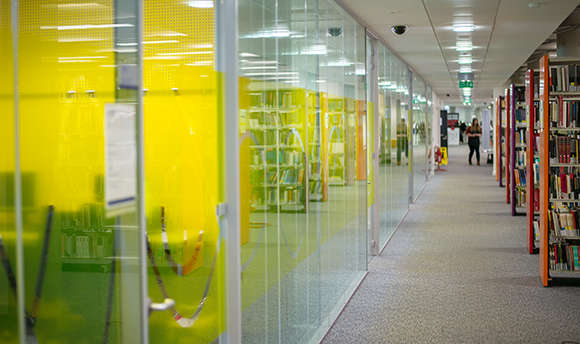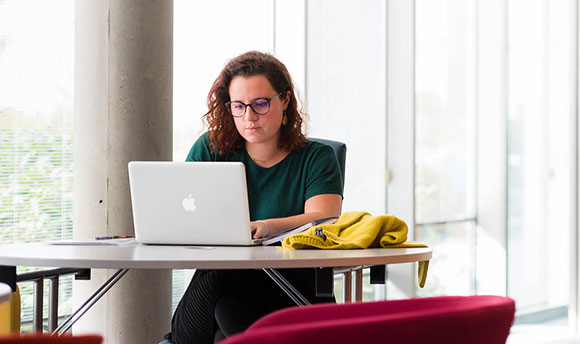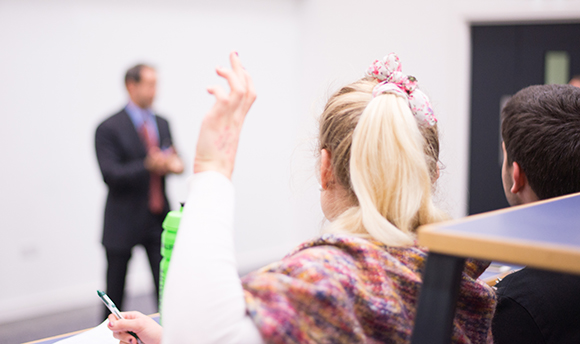Time Management and Remote Learning
Good time-management is always important when studying at university. It is the foundation for several other skills.
At University, you will need to be in control of your own study time, making sure that you give yourself enough time to complete the tasks required to complete your modules successfully and without too much stress.
Spending time to make schedules can help you stay on track with your studies. You can make schedules for the whole semester, a month, a week, or even a day.
Before creating your schedules you should consider how and when you work best.
Here are some of the things you might ask yourself:
- What is the best time of day for me? Am I a night-owl or an early-bird?
- What days are best for study time?
- When do I need to study? (timetabled sessions, either on-campus or synchronous online)
- Do I work more effectively at home, or somewhere else?
- Do I have the space I need to study at home?
- Can I relax when I need to?
- Are there any other pressures I need to deal with?
- What distracts me most? Social media? Friends? Family?
- Do I need quiet? Music? A warm/cool room? Food?
- How often do I need breaks? (Probably more often than you think)
- Do I work better with others or alone?
- When do I feel energetic/alert? When not?
Spend some time reflecting on these questions, and be as honest with yourself as possible. If you find that you end up scrolling through Instagram instead of studying, for example, think about how you can avoid doing this.
When you are making your personal schedule, remember that University is not your life. Make sure you give yourself time to do everything, putting the necessary time aside for your job (if you have one) and any other commitments you may have (family etc. etc.). But also think about the fun things - friends, social media, exercise, Netflix! You need to relax as well, otherwise you will find it difficult to study effectively.
Finding the ideal space isn’t easy. It may be that you use different spaces for different activities. Again, this year it is even more important to think about where you are going to study as your options are more limited than in usual circumstances. Do remember, however, that you are still being strongly encouraged to come into University and make use of the facilities. The LRC is open to students, so, if you find you work better in a library environment, you can.
As with time, there are various things to consider when thinking about where to study:
- Is there room to write?
- Is there space for files/boxes?
- Is there space for my laptop plus some books and writing materials?
- Do I need internet connection? Is it good enough here?
- What temperature do I like the room to be?
- Is there good light?
- Are there any distracting noises?
- What distractions are there? How can I deal with them?
- Do I like to work in the library?
- Do I like to work in a café?
Again, spend some time reflecting on these questions and try to come up with the most effective solutions. Finding the place you work from best when at home is going to be really important this year. Some people recommend having a dedicated space which is only used for study; this may work for you, but it is not always possible - or desirable. Some people prefer working sitting on the floor surrounded by their notes.
There is no right or wrong way; there is only what works for you. Try things out in the first couple of weeks of semester, but don’t be afraid to change if what you thought was right isn’t working after a few weeks.
Making sure you have everything you need before starting to study is a basic but effective time-management trick. Nothing helps a procrastinator more than sitting down to study and then finding that she needs a pencil, some paper, that book she was using yesterday, better internet connection, an eraser, a jumper (it is a bit cold)…oh, and a glass of water (in case she gets thirsty). Suddenly half an hour has passed and no studying has happened. Spend five minutes setting up what you need for your study session and you will work much more effectively.
Some things to help with this are having:
- a supply of stationery - pens, pencils, erasers etc.
- a diary - to help you keep track of everything
- an online calendar - Outlook for example (synch your various online calendars if necessary)
- a wall planner - you can use these personal timetable templates
- a ‘Things to do’ list - ticking things off as you get them done can help motivation!
- ‘post-it’ notes (multi-coloured ones are good) to help note important information
- some kind of filing system, which could range from differently coloured folders to cardboard boxes, one for each topic.
Good organisation through semester saves stacks of time when it comes to revision!
Another resource which can be helpful in time management is the Pomodoro technique; it helps you identify what you do and what you need to change to make the most effective use of your time.
You will regularly have to take responsibility for your learning. Many of your classes will be delivered online; some of these will be asynchronous sessions, meaning that they are recorded and put on the module Hub area for you to access at a time which suits you. You will have to keep track of what you are doing and make sure you are keeping up with your studies.
On Campus
All students will have some on-campus provision. You should really make the most of this time. You will have the dedicated teaching hours during which you will need to be in your seminar rooms, but schedule in extra time around this to do other things which are best done at the University.
Think about what these might be and make sure you give yourself enough time to do them. Some activities you might consider are:
- going to the LRC
- to take out books
- to study
- to look at the books on the shelves
- making an appointment with Student Services to coincide with your time on campus (check out Student Central for what Student Services can help you with)
- making a face-to-face appointment in the ELS to coincide with your time on campus (this can be done by emailing els@qmu.ac.uk)
- spending time with some of your fellow students in the ground or in the Students’ Union. It is good to stay familiar with the campus and spend ‘real time’ with your University friends!
- meeting your study group if you have any group-work assignments. Although you can meet remotely, it is important to keep real contact too.
It is likely that your on-campus taught sessions won’t be recorded, so make sure that you at least schedule your time to be there and get the most out of face-to-face teaching… and remember to factor in travel time!
Synchronous sessions
Some of your sessions will be delivered online via Collaborate, but as ‘live’ events broadcast at a specific time. You will be expected to be at the session to which you have been allocated. It is important that you treat these sessions as you would on-campus taught sessions; your tutor will know who has attended and who hasn’t.
Think about these sessions lasting slightly longer than they are scheduled to. This is so that you can make sure you are ready to study when the session starts and that you don’t need to leave early.
Things to consider when preparing for these sessions are:
- getting your set-up ready - you need:
- decent internet connection
- check this in advance: you don’t want to turn your laptop on and realise the internet isn’t working!
- the correct link to the session
- make sure you know where to find this.
- space to take notes
- materials needed to take notes
- making sure you have done any necessary preparation in advance
- have you watched the lecture on this topic?
- was there any seminar reading you were supposed to do?
- have you taken notes from the reading so that you can participate in any activity in the session?
- Will you need to turn on the camera during the session? Do you look presentable?
After the session has finished, you may not want to log off straight away. This could be a good time to continue a conversation with the other students on your course. Your lecturer may leave the session ‘open’ so that you can continue a more informal chat, or you may want to arrange a Microsoft Teams meeting with some of the other students in your class. Think about scheduling in time for this.
Always give yourself time after a seminar – whether on-campus or online – to consolidate the information covered. Study time is not only contact time; you need to add self-directed study time on too, and follow-up from a seminar is included in this: extra discussion on the topic with classmates, follow up in the LRC looking for further reading on the topic, adding to the discussion board on the Hub area (if there is one for your module), making an appointment with ELS if you need help working out an assignment or study techniques.
Asynchronous sessions
All of the lectures this year are to be recorded and put on the Hub for students to access at a time which suits them best. This means that, in some ways, these are the most difficult sessions for you to manage! There is no external impetus for you to engage with the session; it is all down to you.
Again, the best way to approach this is to think of these as live on-campus sessions. Allocate a time each week which is dedicated to watching the lecture. Give yourself the full time of the lecture to allow for full engagement, don’t just dip in and out! Remember, you will need to watch the lecture before your seminar as the lecture will prepare you for any discussion or activity in the seminar.
Although it is a good idea to dedicate the full time needed to watch the lecture, the good thing about it being recorded is that you can stop it if you need a break or rewind it if you have missed something! Do still take notes as you would in a real lecture as you don’t want to have to re-watch the same lecture over and over 20 times! Look at our guide on Making the Most of Online Lectures for more advice.
Remember, we all work differently, so don’t worry if your friends seem to be approaching things in a different way from you. But don’t let things get on top of you - if you feel like you need help with time management, get in touch with ELS or Wellbeing!
ELS Support Enquiries
The ELS is based in room 1153 in the Library.
Opening hours:
Tuesday to Friday
09.15 a.m. - 16.15 p.m.



